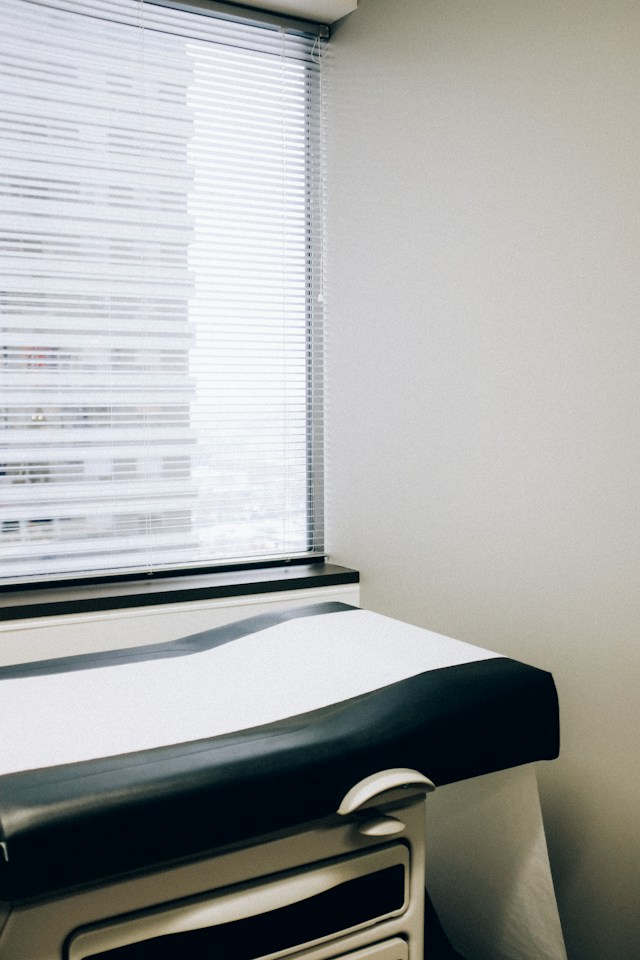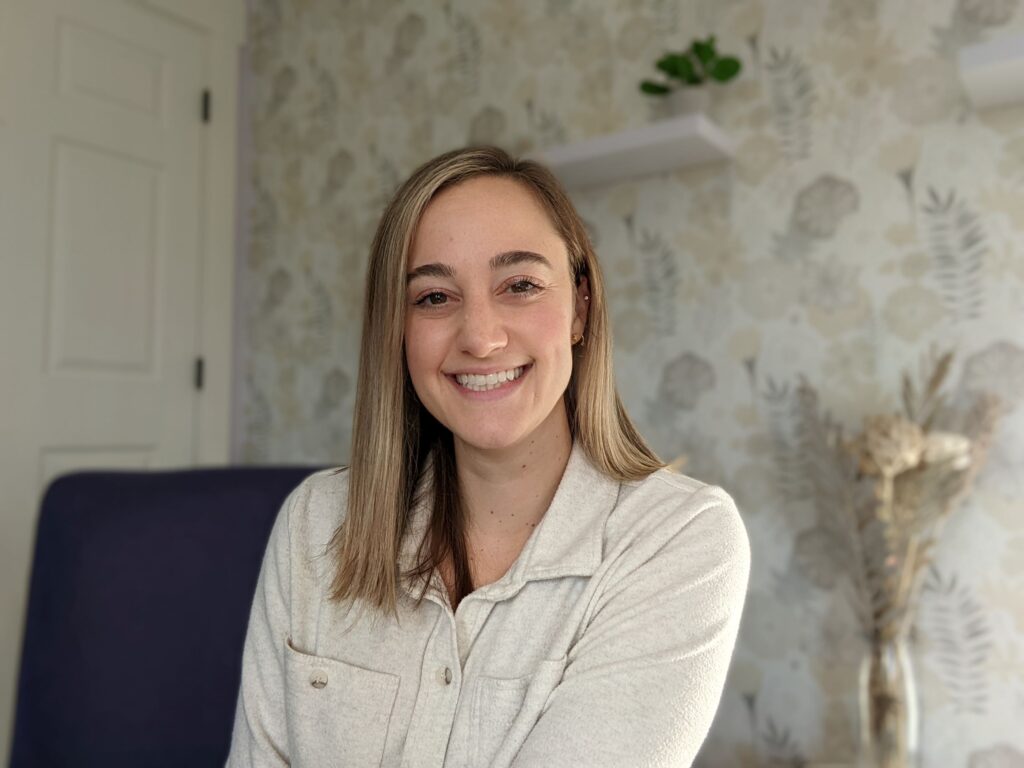This post will cover over 20 ways to prepare for a doctor appointment. Whether you manage a chronic illness or chronic pain condition, have medical anxiety (white coat anxiety), or generally feel unprepared and overwhelmed at the doctor, you can benefit from some of these tips.
For folks with chronic illness and chronic pain, going to the doctor and many doctors is common. There can be a mix of emotions that come up as well as past negative experiences that come up when anticipating a doctor appointment (even if it is just a routine visit). The following tips will help you prepare of a doctor appointment and feel a bit more confident.

7 Tips to Prepare Before the Doctor Appointment
1. If possible, make the appointment for a day of the week and time of day that will create the most ease for you and your schedule
- If you can take a half day off work, do it. Maybe consider it at the end of the week or the start depending on what would feel best.
- Would you rather get it over with first thing in the morning? Or after later in the day?
2. Prepare!
- Write down questions you want answered, concerns, or symptoms you would like addressed.
- If you can, document the ways the symptoms are impacting your life or have made you adjust to them. Think about what have you not been able to do because of them (even if you have found work arounds)
3. Know the reason for the doctor appointment
- This sounds silly, but sometimes doctor appointments get coded in particular ways that certain concerns will need to be addressed in a separate appointment. It is good to have expectations of if this appointment is routine, reviewing test results, focused on doing particular tests or treatments, etc.
- You can do this by asking when you schedule or when you get a confirmation call for the appointment. You can call the office and ask if what you would like to be addressed will be able to be in the scheduled appointment, and if not, ask if you can add more time or another appointment.
4. Identify what is the most worrisome part of the appointment as you think about it?
- Sometimes we aren’t quite sure what is making us feel anxious for an appointment. If we identify it, sometimes it starts to help reduce the anxiety or put it more in the appropriate perspective.
5. Consider what might make the toughest part or most anxious part easier? And try to accommodate for those supports/needs if possible
Some possible examples might be:
- Bringing someone with
- Having a list of questions
- Having a written out response or request beforehand that you practice saying
- Calling ahead of time or sending a virtual message to the office with your list of questions
- Being able to take a break if needed
- Being able to not do the recommended treatment that same day (blood work, scan, etc.)
6. If you would like to be able to go back through the appointment (like if you are getting test results back) ask ahead of time if you can record the appointment.
- This can help for those whose anxiety leads to their brain forgetting everything when it gets overwhelmed
7. Consider bringing a loved one or friend with you who can be a support and/or take notes for you and help you remember to ask certain questions
Before the appointment, let your support person know how you want to be supported, such as:
- Do you want them to just be there in the waiting room or come back with you?
- Do you want them to take notes?
- Do you need them to share some about their experience of witnessing your symptoms and challenges for additional advocacy?
- Do you want them to remind you of your questions?
5 Tips to Prepare the Day of the Doctor Appointment
1. Do something before the appointment that is enjoyable, stress-relieving, or supportive of your needs
Some examples might include:
- Go for a walk, listen to a meditation, do a workout (maybe a high intensity one will help with the anxious energy or maybe you need a strength one to feel strong, or maybe a stretching or yoga class to slow things down a bit)
- Eat and hydrate normally throughout the day (unless you need to fast for the appointment)
- Spend time with pets or give a loved one a call
2. Wear something that is comfortable
- Wearing something that is comfortable and soothing can serve as a resource throughout the appointment.
3. Reflect on any coping skills you have and practice one or more before going into the appointment
- Breathing exercises
- Movement
- Somatic regulation skills (here is a list of 3 you might try)
- Drawing/coloring
- Grounding skills
- Music
- Being outside
4. Bring some sensory fidgets
- These can be helpful in the waiting room or even during the appointment to help your anxious energy have a place to go. Bring headphones, if that is helpful in the waiting room to listen to music, podcast, or to reduce sensory overload.
5. In the waiting room, remind yourself that it is normal to feel anxious
- You can also remind yourself that there will be an end to the appointment
- If you have a sense you want to get up and leave while you are waiting, you can ask if it is okay for you to wait/walk around outside and for them to call your phone. This can help some of the anxious energy have a place to go, rather than feeling stuck

7 Tips for During the Doctor Appointment
1. Allow yourself to take in the room when you are brought back
- Doing this, helps your brain and body arrive and orient to the new space you are in.
- Look around and notice how it is decorated (probably not well).
- Some tips I tell my clients is to try and find the things in the office that are “not terrible” or “not the worst decorations they have seen”
- Maybe focus on the fact that the color of the walls is not dreadful or the pictures they have could be worse.
2. Take out your notes/questions or open your notes app on your phone and review them
3. You can ask the doctor or nurse to repeat their responses or to slow down
- Asking for repeating or slowing down can help you take in more of the information, or allow you to realize you might have a question about it
4. You can ask for a summary of your visit as well as recommendations for treatments
- Your doctor office or provider will be able to provide you with a summary of what was covered. I have found that with doctor’s I have really liked, they have created the summary in non clinical language so it was easy for me to understand
- Getting a summary can help with reviewing the visit afterwards and helping you know if there is need for follow up related to treatment recommendations
5. You can ask clarifying questions or have them repeat themselves.
6. Here are some other questions that may be helpful:
- Repeat back what they said and ask if you understand them correctly.
- “Give me a second as I process that. What I am hearing is…. Is that right?”
- “So what do the next steps look like for this?”
- “What are my options? Do I have to do this today?”
- “Who will reach out to me about scheduling that?”
- “What are the downsides to _____(medication, procedure, test, treatment)?” “What are alternatives? (medications, treatment approaches)
- “What should I expect when I start to take____(medication or treatment)”
- “If you are saying everything is normal, but I have these symptoms, what other tests might you consider for other conditions that my symptoms may fall into?”
- “How did you rule out other differential diagnoses?”
- “Is there another specialist who would be able to better assess my group of symptoms?”
7. Ask how you can follow up if more questions come up
- It is always helpful to know the best way to reach out or get in touch if more questions arise or if some side effects of concerns arise afterwards. Having this information can help you feel a bit more confident leaving, even if you need time to process all the information you recieved at the appointment
4 Tips to Consider for After the Appointment
1. Allow yourself to recognize that you are no longer in the doctor’s office.
- Look around when you have left and take a few breaths.
- Give yourself some time in your car before driving to recognize that it is over
2. Have a plan for afterwards that involves something to look forward to
Being able to bookend the appointment with something that is enjoyable or at least de-stressing can help your mind and body process the anxiety of the appointment.
Some examples might be:
- A specific meal
- coffee
- Ice cream or a tasty treat
- Fun activity
- Going for a walk with a friend or a pet
3. Call a friend, family member and share with them your experience (whether it was helpful or not)
- This can happen right after the appointment or later.
- Talking with someone else about the experience can help you process what you learned and oftentimes helps to highlight what you might have missed (due to overwhelm) or because your doctor didn’t tell you. This will help you create a list of follow up questions to share with your doctor (by calling or through their portal).
4. Give yourself a break for the rest of the day, if needed
- If you do this, you can ask your doctor of a note about the appointment if your school or work needs a medical note
- This is particularly important for those with chronic illness and those who go to so many appointments and don’t always leave feeling heard, understood, or helped.
- Also important for anyone with higher levels of anxiety or history of medical trauma
Going to the doctor can be stressful, especially if it’s the first time seeing this doctor. While a number of these tips are simple, taking time to review them to prepare for a doctor appointment can help reduce anxiety and hopefully help you get the information you need from the appointment.
If you are interested in a PDF download of some of the highligted points to help you prepare for a doctor appointment, you can do so here by signing up for my monthly newsletter. You will recieve a welcome email with a link for the download. My newsletter will provide monthly updates for new blog posts, upcoming therapy groups, and other free downloadable resources.
If going to the doctor is something that creates a lot of anxiety for you or you have a hard time advocating for yourself as you manage the medical system related to a chronic illness, reach out for individual support.
I am licensed therapist in NC and OR and I specialize in providing therapy for chronic illness and chronic pain. I can help you navigate some of the challenges of medical anxiety and trauma that come up when you go to the doctor.

Photo credits to: Glenn Carstens-Peters on Unsplash, Photo by charlesdeluvio on Unsplash,
© 2022-2026 Lexi Gross Counseling PLLC